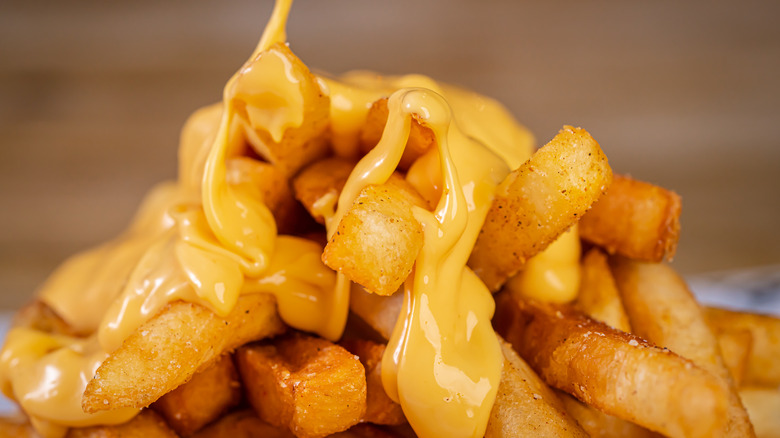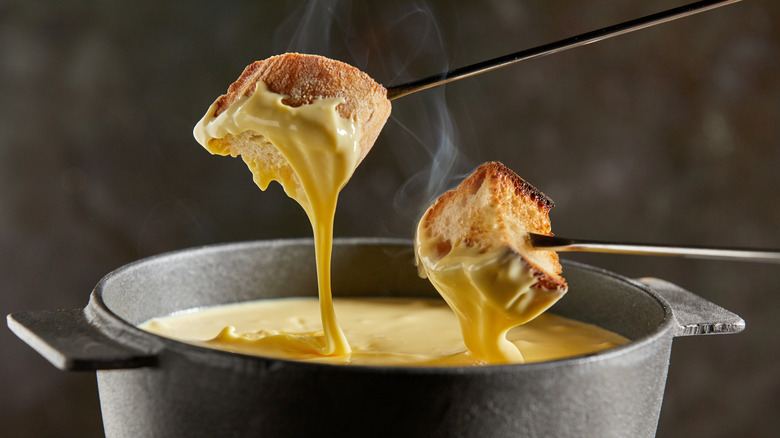These Tricks Will Help Your Cheese Melt Better
Some cheeses are just made to melt. Creamy Gorgonzola, moisture-rich Brie, and even emulsified American are some of the top melters out there for their own specific reasons. So, the next time you have a hankering for a truly creamy cheese sauce, it's best to know the characteristics that turn out the best finished product.
Per Allrecipes, a handful of factors decide whether a cheese is naturally meltable, or not. More acidic cheeses, like ricotta and feta, maintain their shape even when hot. This is definitely not a good thing if your endgame is to melt it down. Younger cheeses are also better choices than older ones, because the latter will turn grainy when melted.
The cheese's moisture level is another biggie when it comes to melting. The more moist it is, the more likely the cheese is to have milk proteins that aren't densely packed. This helps the proteins separate more easily when warmed up. This is easy enough to eyeball, as some cheeses (like Brie) are visibly moist. Fattier cheeses also melt better than their skinny counterparts, as lower-fat cheeses tend to turn stringy.
The dos and don'ts of melting cheese
One of the first steps to achieving a luxe melted cheese is to avoid the pre-shredded variety, which is coated in starch (via Allrecipes). Instead, grate the cheese yourself. It only takes a couple of extra minutes, and the benefits are so worth it. Melting cheese in an acidic substance, like white wine, is another great hack to produce super smooth, rich cheese. The recipe this is best known for is ultra-indulgent cheese fondue.
Allrecipes also recommends turning cheese into a béchamel sauce. All you need to do this, according to Bon Appétit, is milk, butter, flour, salt, and nutmeg. This can be used as part of a whole host of recipes, but is extra delicious as the base of ultra creamy macaroni and cheese.
Lastly, do not crank up the burner heat, no matter how much of a rush you're in. Per Epicurious, this common misstep will melt the cheese too fast and cause it to get crusty and hard. Instead, keep the heat low and be patient. The end result will deliver, we promise.

